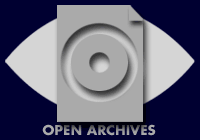Moscow, Russian Federation
The article is an introduction to the analysis of the concept of time in terms of the most famous and significant philosophical concepts of the last centuries in their connection with the concept of Aristotle. The basic concepts of the Aristotelian ontology, including time, are briefly analyzed, and an attempt is made to point out the immediate relevance of the Aristotelian ontology for the current philosophy of science. Mainly, the article refers to the problem of polyonticity, that is, the existence of various modes of being, and suggests that the modern theory of quantum reality should be interpreted as the doctrine of "being in possibility" or δύναμις. The notions δύναμις (possibility) and ἐνέργεια (reality), along with time, are also ones of the key in the philosophy of Aristotle, therefore, much attention is paid to their interaction in the article. Of great importance here is δύναμις as a possibility and an acting force, through which the space and time are interrelated, and also the immediate jump to the actual mode of being. Next, the article refers to the world of physics, in particular, to the quantum theory and correlates the transition from δύναμις to ἐνέργεια with the so-called "jump" of the wave function, as a result of which a quantum object becomes measurable. It highlights the distinguished status of time in quantum mechanics and affirms that it is time that contributes to the fact that the system or thing comes to a state of completion, that is, it becomes actual. Finally, the article briefly summarizes the Heideggerian understanding of the "event" as a metaphysical "meeting place" of time and being.
time, being, becoming, Aristotle
1. Aristotle, Physics. Moscow: KomKniga, 2016, 399 p. (In Russ.)
2. Aristotle, Metaphysics. - Moscow: Eksmo, 2016, 608 p. (In Russ.)
3. Bergson A., Time and Free Will: An Essay on the Immediate Data of Consciousness. - Moscow: Knizhnyi klub, 1992, 336 p. (In Russ.)
4. Hegel G., Encyclopedia of the Philosophical Sciences. Part 2: Philosophy of Nature. Moscow: Mysl', 1975, 695 p. (In Russ.)
5. Zakharov V.D., Freedom in the natural world. // Spontaneity and determinism; Institute of Philosophy RAS. Moscow: Nauka, 2006, 323 p. (In Russ.)
6. Sevalnikov A. Yu., Interpretations of quantum mechanics: In search of a new ontology. Moscow: LENAND, 2016, 192 p. (In Russ.)
7. Heidegger M., Being and Time. Moscow: Akademicheskii proekt, 2015, 460 p. (In Russ.)
8. Heidegger M., Time and Being: Articles and Speeches. Moscow: Respublika, 1993, 406 p. (In Russ.)
9. Φυσικής Ακροάσεως. Available at: https://el.wikisource.org/wiki/Φυσικής_Ακροάσεως.
10. Μετὰ τὰ φυσικά. Available at: https://el.wikisource.org/wiki/Μεταφυσικά.

















